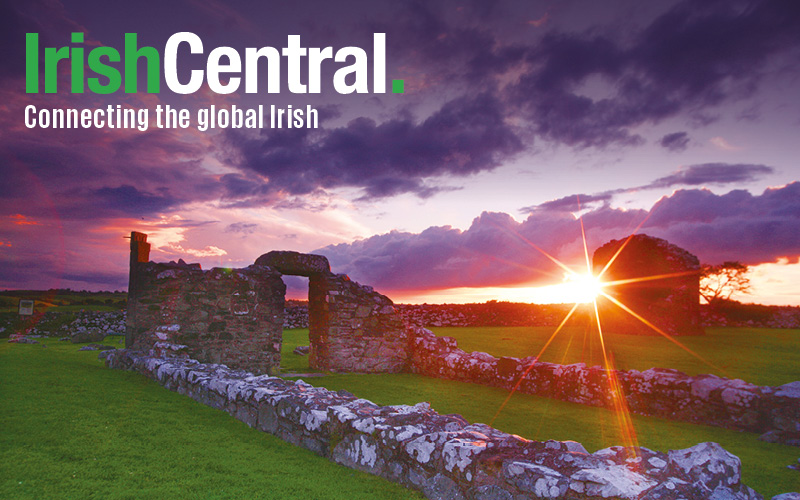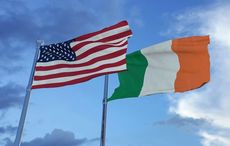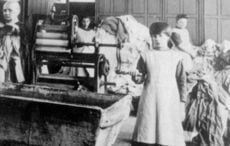January 21, 1919, is celebrated as the first meeting of the Dáil at the Mansion House in Dublin, but, ironically, the most important event of that day took place at Soloheadbeg where two Royal Irish Constabularies policemen were shot dead.
Dan Breen was one of Ireland’s fiercest fighter, both in his native Tipperary and later in Dublin as one of the members of Michael Collins’ Squad, the infamous Twelve Apostles. But his claim to fame might be that he was one of the rebels who started the War of Independence in Soloheadbeg, Tipperary.
January 21, 1919, is celebrated as the first meeting of the Dáil at the Mansion House in Dublin, but, ironically, the most important event of that day took place at Soloheadbeg where two Royal Irish Constabularies [RIC] policemen were shot dead and a hundredweight of gelignite was commandeered in the name of Irish freedom.
Read more: How four Irish rebels escaped from a Welsh prison on the day the Irish parliament was found
In Breen’s own words
Breen tells the story of the Soloheadbeg hijacking in his exciting book, “My Fight for Irish Freedom:” “The Volunteers were in need of high explosives for grenades and demolition work. Apart from that, [Seán] Treacy believed that the forcible taking of the gelignite from a police escort would have a salutary effect on the morale of the Volunteers. In this mood, the Soloheadbeg ambush was planned. We expected that there would be an escort of six fully-armed police and, if they put up an armed resistance we had resolved not merely to capture the gelignite but also to shoot down the escort. This action of ours would proclaim to the world that there still lived Irishmen who had made up their minds not to allow free passage to an armed enemy.”
Nine Volunteers in all took part in the sortie including Breen, Seán Hogan, Seán Treacy, the commandant in charge and his vice-commandant, Séamus Robinson. “We spent the night at my home,” Breen wrote, “and each morning about four o’clock my mother prepared breakfast. On the fifth morning she declared, ‘If you don’t do something today, you can get your breakfast tomorrow.’
“The hour had come. I cast a hurried glance down the road. The driver and the County Council employee who was to take delivery of the explosives walked beside the horse. Two uniformed policemen armed with rifles were following at a short distance behind the cart.
“One moment before, my pulse was beating rapidly from excitement, but when I saw the cavalcade at close quarters, my nervousness disappeared. I felt I could take on single-handed a squadron of those fellows. What were they but a pack of deserters, spies and hirelings? Nearer still they came conversing in low tones. They were almost under the shadow of our revolvers.
“‘Hands up!’ The cry came from our men who spoke as if with one voice. ‘hands up!’
“In answer to our challenge they raised their rifles, and with military precision held them at the ready. They were Irishmen, too, and would die rather than surrender. We renewed the demand for surrender. We would have preferred to avoid bloodshed; but they were inflexible. Further appeal was useless. It was a matter of our lives or theirs. We took aim.
“The two policemen fell, mortally wounded. James Godfrey, the driver of the cart, and Patrick Flynn, the County Council employee, looked on in stupefaction. If we had disarmed the police without firing a shot the matter would not have been so serious. The shots had alarmed the countryside. In a moment men and women would appear at every doorway. Within an hour, hundreds of police and military would be scouring the countryside for us. From that moment we were outlaws with a price on our heads.”
Read more: The Irish parliament first met on this day 100 years ago: How did it happen and what did it mean?
On-the-run in the harsh winter
Breen took off with the horse and cart and hid the gelignite. But his painstaking three-month ordeal was only beginning.
“And now our troubles began,” Breen wrote. “We had to give a wide berth to Tipperary and its precincts. We were tired with the excitement of the day and the suspense of the previous days but we could not think of rest for a long while yet. The weather was intensely cold; to make things worse, it started to snow. There was now the further danger that, if the snow lodged, we might easily be traced.”
Breen broke the terror of the run with this humorous story of men clearly frightened by the elements and the British pursuit: “Travelling on railroad-tracks is tiresome even at ordinary times. For men in our condition it was a cruel ordeal but we had to keep going. In the thick darkness a figure loomed up. I was walking in front. I promptly levelled my revolver and shouted, ‘Hands up!’ The figure remained motionless. I advanced with gun levelled and walked into a railway signpost which displayed the warning, Trespassers will be prosecuted. Unhappy though our plight was, the boys laughed at my discomfiture and I had to join in the laughter.
“We had to tramp from parish to parish without a penny in our pockets,” Breen recalled. “Our clothes and boots were almost worn out and we had no replacements. Many in whom we thought we could trust would not let us sleep even in their cattle-byres.”
But with the help of friends who put their lives on the line, Breen managed to make it to the spring and the relative freedom of Dublin.
Murderers, not heroes
Breen was shocked at how the mission had been reported in the press: “Since we had left Soloheadbeg we had not spoken to anyone and had not seen a newspaper. Sure enough, just as we anticipated, there were the big splash headings, TIPPERARY OUTRAGE, FEARFUL CRIME, MURDER OF TWO POLICEMEN…Most of the details were absolutely false.”
The rebels of Soloheadbeg were called out by clergy and even some of the Sinn Féin leadership in Dublin. [It should be noted that Michael Collins, who probably would have approved of this attack, was in England at the time preparing to spring de Valera from Lincoln Gaol.]
“The moral aspect of such action,” Breen wrote, “was vigorously criticized after the event. Many people, even former friends, branded us as murderers. We had thoroughly discussed the pros and cons and arrived at the conclusion that it was our duty to fight for the Irish Republic that had been established on Easter Monday, 1916. We had decided also that when the smoke of battle had cleared away we would not leave Ireland, as had been the usual practice. We would remain in our native land in open defiance of the British authorities. We felt that such a demonstration was bound to encourage others to do likewise. Our only regret was that the escort had consisted of only two Peelers instead of six. If there had to be dead Peelers at all, six would have created a better impression than a mere two.”
To add insult to injury, a bounty had been put on their heads: “We also learned that a reward of £1,000 was offered for any information that would lead to our capture. A few months later this offer was increased to £10,000. Nobody ever tried to earn it with the exception of a few members of the RIC. They failed; many of them never made the second attempt.”
Breen’s defense
Breen wrote that, “These are the plain unvarnished facts concerning the first armed encounter in which RIC men were killed since the Insurrection in 1916. They were the first of a series that helped to bring Ireland’s name once more before the world.
“Our only consoling thought was that the men of ’98, the Fenians of ’67 and the men of 1916 were condemned in their day. As the cause of these men had been vindicated, so too would our cause when the scales fell from the eyes of the people. At this time, however, scarce a word would be heard in our defence. Our point of view was not even to be listened to.”
Escape to Dublin
Breen would soon find his way to Dublin and take part in the unsuccessful ambush of the Lord Lieutenant of Ireland, Lord French, at Ashtown in December 1919. The big city offered protection of a kind for rebels like Breen from the country. Breen along with Treacy were energetic members of Collins’ Active Service Unit when he was severely shot up in Drumcondra on the night of October 11, 1920.
Breen was sharing a bed with Treacy when the British came for the men responsible for Soloheadbeg. A fierce gun battle ensued and between Breen and Treacy, the two of them would kill 13 British soldiers as they escaped their not-so-safe safe-house. Treacy miraculously escaped only to be gunned down on Talbot Street three days later. Breen himself somehow escaped and knocked on a random door. The man who answered it said, “I do not approve of gunmen, I shall call the military.”
Breen heard a woman’s voice, “If you do, I’ll report you to Michael Collins!” Soon he was in the hands of the IRA and was smuggled into the Mater Misericordiae Hospital’s maternity ward where he recovered from his severe wounds.
Read more: The death of this rebel-on-the-run marked the start of five weeks of British terror in Ireland
Breen would go on to become a TD in the Dáil and live a full life. He died in Dublin in 1969 at the age of 75. He is known for many things, but his actions at Soloheadbeg that day will go down in Irish history for its audaciousness and bravery, for it started a war that would bring Ireland her freedom after 700 years of British occupation.
Dermot McEvoy is the author of the “The 13th Apostle: A Novel of Michael Collins and the Irish Uprising” and “Our Lady of Greenwich Village,” both now available in paperback, Kindle and Audio from Skyhorse Publishing. He may be reached at [email protected]. Follow him at www.dermotmcevoy.com. Follow The 13th Apostle on Facebook at https://www.facebook.com/13thApostleMcEvoy/




Comments